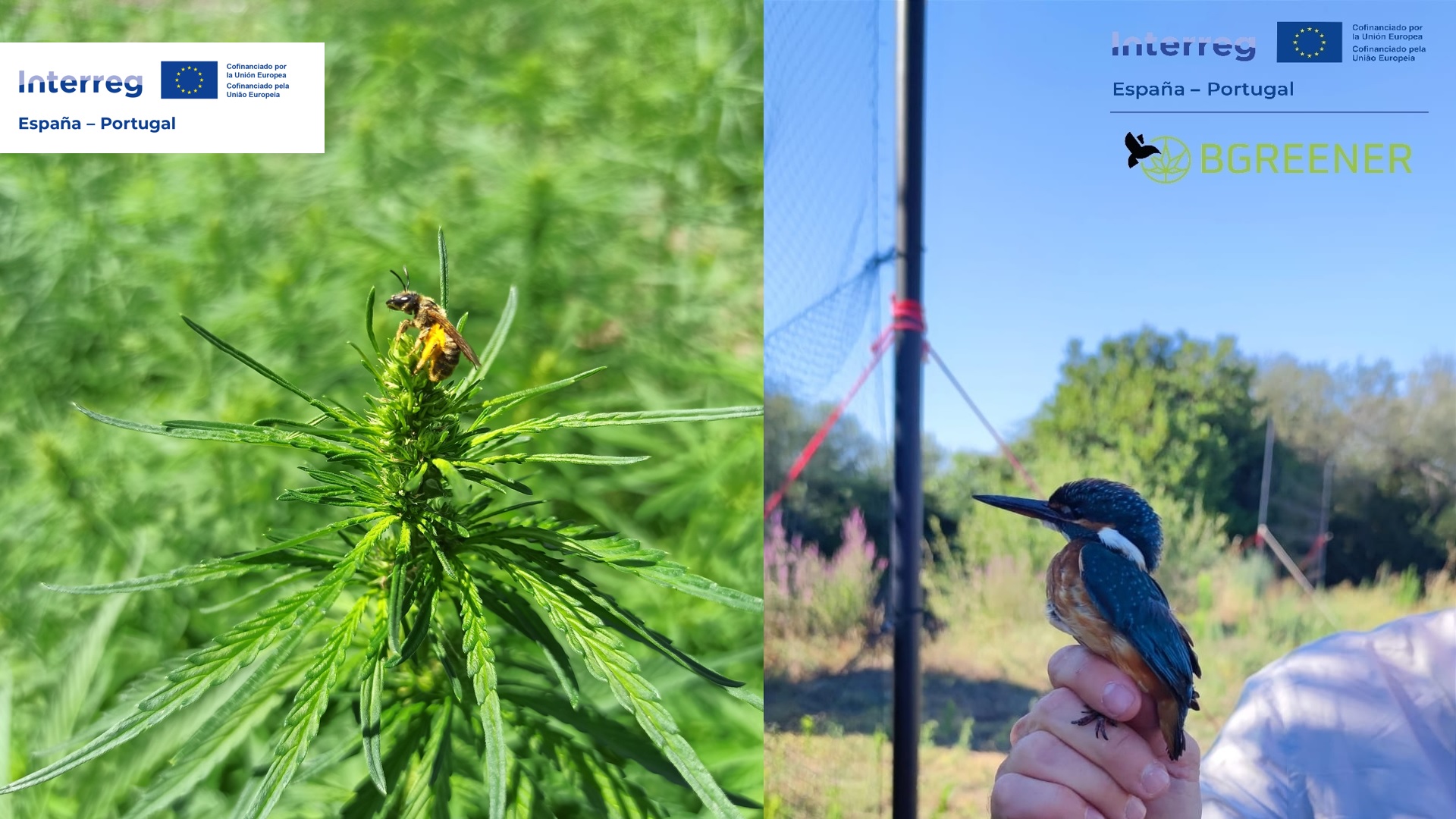- To promote opportunities around hemp, a sustainable resource with great potential for various industries.
- BGREENER is co-financed by 75% from the European Union through the Interreg Spain-Portugal (POCTEP) 2021-2027.
The climate crisis and loss of biodiversity are an existential threat to Europe and the rest of the world. In response to this challenge, it is critical to develop sustainable alternatives that can provide an effective answer to climate change while helping to halt the decline of ecosystems.
From a political perspective, towards a greener Europe and in alignment with the European Biodiversity Strategy for 2030, the BGREENER project aims to create new biodiversity hubs, enhancing the cultivation of hemp as a multifunctional green infrastructure to protect and conserve transboundary areas of high ecological value. Simultaneously, the project promotes the bioeconomy, generating high-value chains that can boost the rural areas of the Central Portugal-Extremadura-Alentejo cooperation zone.
In this context, the project will celebrate its I Iberian Hemp Congress in Badajoz, on 7th November 2024.
This event aims to promote knowledge and opportunities surrounding hemp, a sustainable resource with significant potential for various industries, while engaging identified target groups, relevant authorities, and the media.
BGREENER Project
To achieve these objectives, the potential uses of hemp will be assessed as multifunctional green infrastructures that can drive the green economy, through crop trials with different purposes. These include the potential use of hemp stems as a raw material source for biomaterials and the use of hemp seeds as a sustainable food source, while not overlooking the environmental benefits provided by the crop during the process.
To this end, studies will focus on: carbon capture, breaking the disease cycle for use as a rotational crop, soil regeneration, improving biodiversity, and the low use of inputs as environmental benefits that significantly contribute to the goals of the European Green Deal. Additionally, the life cycle of various products will be determined, and the traceability of the entire process will be ensured.
It is important to note that the environment and biodiversity do not recognise borders. The success of the project will be based on cross-border cooperation to implement, through hemp cultivation, a natural and innovative solution that accelerates the transition towards a regenerative growth model.
Innovation will focus on developing new biodiversity spaces as tools that provide traceable ecological, economic, and social benefits. In this way, the versatile nature of hemp could contribute to achieving a wide range of objectives across various policies, both transversal and sectorial, while meeting the needs of a wide variety of cross-border interest groups.





